Blue Communities is a 4 year research capacity-building programme for marine planning in East and South-East (E/SE) Asia, funded by the UK Government’s Global Challenges Research Fund (GCRF) of which the total value is £1.5 billion. The programme has 12 interconnected research projects, which will be actively integrated to support marine planning, and 10 cross-cutting capacity building activities.
Millions of people across the globe rely on marine and coastal ecosystems for their livelihoods: food, employment and their general well-being. However, the marine environment is under immense pressure from the multiple, and often conflicting, needs of the people that use it. In E/SE Asia, where marine activities are important contributors to Gross Domestic Product (GDP), marine spatial planning involving coordinated decision-making has been highlighted as a key requirement for a sustainable future.
Through academic-stakeholder collaborations, community co-creation and co-delivery, Blue Communities will support the development, implementation and ongoing management of initiatives that promote the sustainable use of marine resources by multiple users, whilst protecting the fragile marine ecosystems and supporting the livelihoods food security, health and well-being of the people in these coastal communities.
Vision
The vision of the Blue Communities Programme is to develop interdisciplinary research capability and lasting collaborations that:
- Facilitate innovative application of integrated planning in the marine environment within the UNESCO Man and the Biosphere Programme, and other marine parks and their communities, in East and Southeast Asia.
- Respond to the UN Sustainable Development Goals of no poverty, zero hunger and good health and well-being for coastal communities through the sustainable use of marine resources.
Overarching challenges
- Promotion of sustainable harvesting
- Preparation for climate change
- Promotion of good health
- Identification of opportunities for growth
- Co-development and implementation of marine planning and management schemes
The Blue Communities team will focus their work on case study sites in ‘UNESCO Man and the Biosphere Reserves’, located in Indonesia, Vietnam and the Philippines, and the Tun Mustapha Marine Park in Malaysia. These ‘Science for Sustainability’ support sites provide an established, collaborative infrastructure in which initiatives can be developed and tested with the local stakeholders, with an aim to then promote successful approaches with other coastal communities in the wider UNESCO Biosphere Reserve network and elsewhere.
One of the most important aspects of this Blue Communities programme is effective and culturally-sensitive relationship building with the wide-ranging stakeholders. Strong links will be forged between the Blue Communities team, case study site and the UK’s North Devon UNESCO Biosphere Reserve, to engender trust between all parties and to underpin up-take and continuation of the marine management strategies that are co-developed.
Key outputs
- Established interdisciplinary and international research and stakeholder networks to continue initiatives into the future
- Ongoing bespoke training programmes
- Knowledge exchange and the co-development of planning and management tools
- Co-developed best practice guidance
- Long-term collaborations between researchers, stakeholders and regions.
- Increased experience of UK researchers addressing Official Development Assistance (ODA) and Development Assistance Committee (DAC) issues and challenges
These outputs will be supported by a number of cross-cutting, research capacity-building activities including:
- Further co-development of the 12 research projects for current programme, identifying associated research capacity and training needs with local communities and researchers.
- Engagement in learning-by-doing through joint projects conducted in case study sites making opportunities for learning and exchange for UK and E/SE Asian researchers as well as opportunities between E/SE Asian researchers, following through with facilitated wash-up analysis of lessons learned from research projects and from stakeholder engagement
- Undertaking iterative evidence synthesis with partners and local communities to inform learning and identify evidence gaps.
- Ongoing identification of additional relevant research/stakeholder partners (Government, NGOs, community groups) and assessment of their skills, as appropriate, for each study site.
- Based on skills mapping and identified research capacity and training needs, co-plan and implement a programme of bespoke training through workshops, mentoring, exchange visits and secondments, lectures and webinars.
- Develop the use of case studies as “training and team development ground”, including the North Devon Biosphere Reserve in UK, and share the lessons learned from research and management experiences.
- Inclusion of stakeholder interaction as a key component of all UK research visits to partner countries to ensure research and its outputs are relevant and sensitive to national and local cultural issues.
- Scale-up research activities and stakeholder engagement to develop regional teams, in addition to national and local teams.
- Identification of future research priorities to develop and deliver further improvements in marine management and planning, including continuous evaluation of the impact of approaches developed and proposed in the current programme.
- Joint application for further funding to address current and future research priorities.
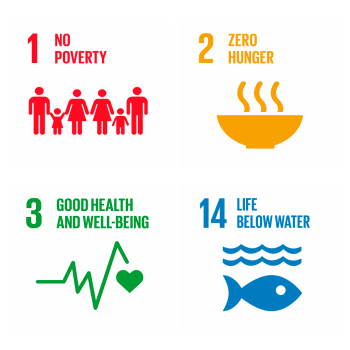
Project partners

University of Plymouth (programme lead)

Blue Ventures Conservation
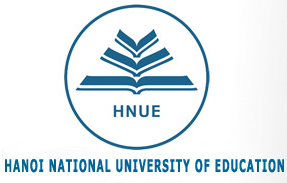 Hanoi National University of Education
Hanoi National University of Education
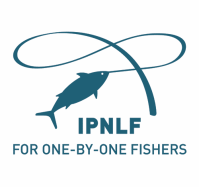 International Pole and Line Foundation
International Pole and Line Foundation
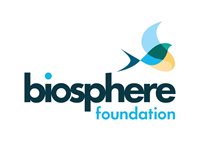
North Devon Biosphere

Plymouth Marine Laboratory
 University of Exeter
University of Exeter
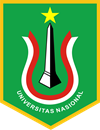
The Centre for Sustainable Energy and Resources Management Universitas Nasional (CSERM-UNAS)

University of Malaya’s Sustainability Science Research Cluster
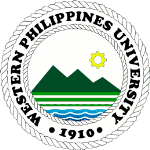
College of Fisheries and Aquatic Sciences, Western Philippines University